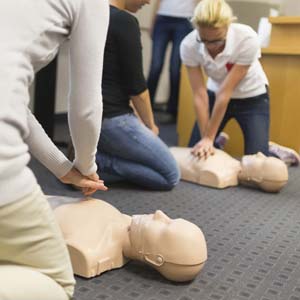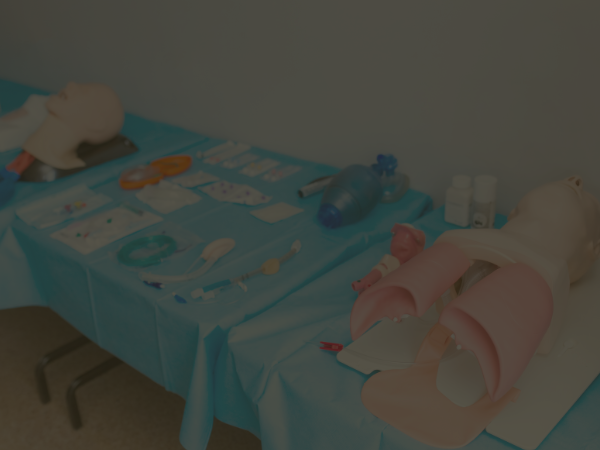CARDIOPULMONARY RESUSCITATION, OR CPR, has its origins in the 1700’s when mouth to mouth resuscitation was recommended to revive drowning victims. The first human life saved with chest compressions was documented in 1903. In the years that followed, researchers and scientists have continued to improve the techniques to make CPR more effective in life-saving and easier for people to perform.
 People often think of CPR trained professionals in conjunction with flashing ambulance lights or doctors. While this is true, many other careers require CPR certification, which do not fit into this stereotype. Advances in technology have made access to CPR training easier and more convenient, especially the newest method – online CPR certification.
People often think of CPR trained professionals in conjunction with flashing ambulance lights or doctors. While this is true, many other careers require CPR certification, which do not fit into this stereotype. Advances in technology have made access to CPR training easier and more convenient, especially the newest method – online CPR certification.
What is Online CPR Certification?
Many professionals choose to certify in CPR online through eLearning, or online-based education. The convenience of being able to certify anywhere you have an internet connection and computer or smartphone makes it a great option for those in need of life support instruction. eLearning has bridged the accessibility gap for those who either do not have the time or energy to spend in a classroom learning CPR the traditional way, like doctors, nurses, and other healthcare professionals.
Five Careers Likely to Require CPR Certification
1. Medical professionals
Medical professionals need CPR certification – it comes with the career. Nurses, medical assistants, physicians, and paramedics are just a few of the many healthcare professions that will be expected to maintain CPR certification and respond to emergencies.
2. Firefighters
Firefighters fight fires, but are also expected to respond to a wide range of other emergencies. Since firefighters are often on the scene of emergencies first, and are likely to be the first to find the victim, fire departments require CPR certification. Fighting fires and saving lives coincide, and without CPR, the risk of losing lives increases drastically.
3. Babysitters, nannies, and childcare providers
If you have ever seen a job posting for a nanny or babysitter, it may have mentioned something about CPR certification. Children and infants are naturally more prone to injuries and choking, and therefore parents and potential employers understand the need for a CPR-trained caretaker. Check out our other blog post on the need for
childcare CPR certification.
4. Security guards
This might seem strange, but employers look for CPR certified credentials when sifting through security guard applications. Prisons, public facilities, and high-traffic areas that hire security guards can be dangerous areas, with a high potential for medical emergencies. Medics could take awhile to get to the victim, and it could be too late. Therefore, employers seek out guards who are able to act in a medical emergency.
5. Swim teachers and lifeguards
Lifeguards and swim/dive teachers need CPR certification due to the potential for drowning. Both children and adults, even if they know how to swim, are at risk for drowning. Lifeguards and instructors need to act fast, and utilize specific skills in the treatment of a drowning victim.
CPR certification is more accessible than ever, and can be taken right in the comfort of your own home with online CPR certification. Everyone and anyone with a little patience and dedication can become CPR certified.
We want to know: Are you CPR certified? Comment below!







Leave a Reply